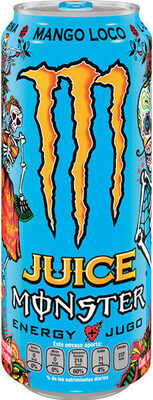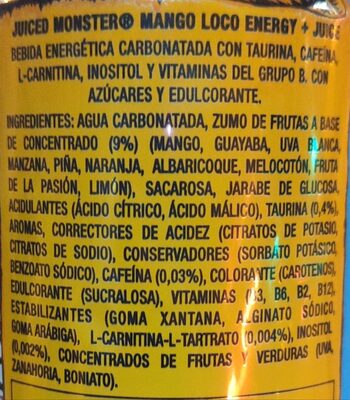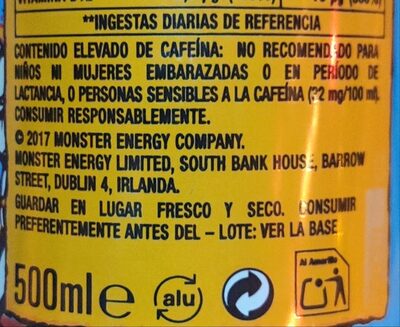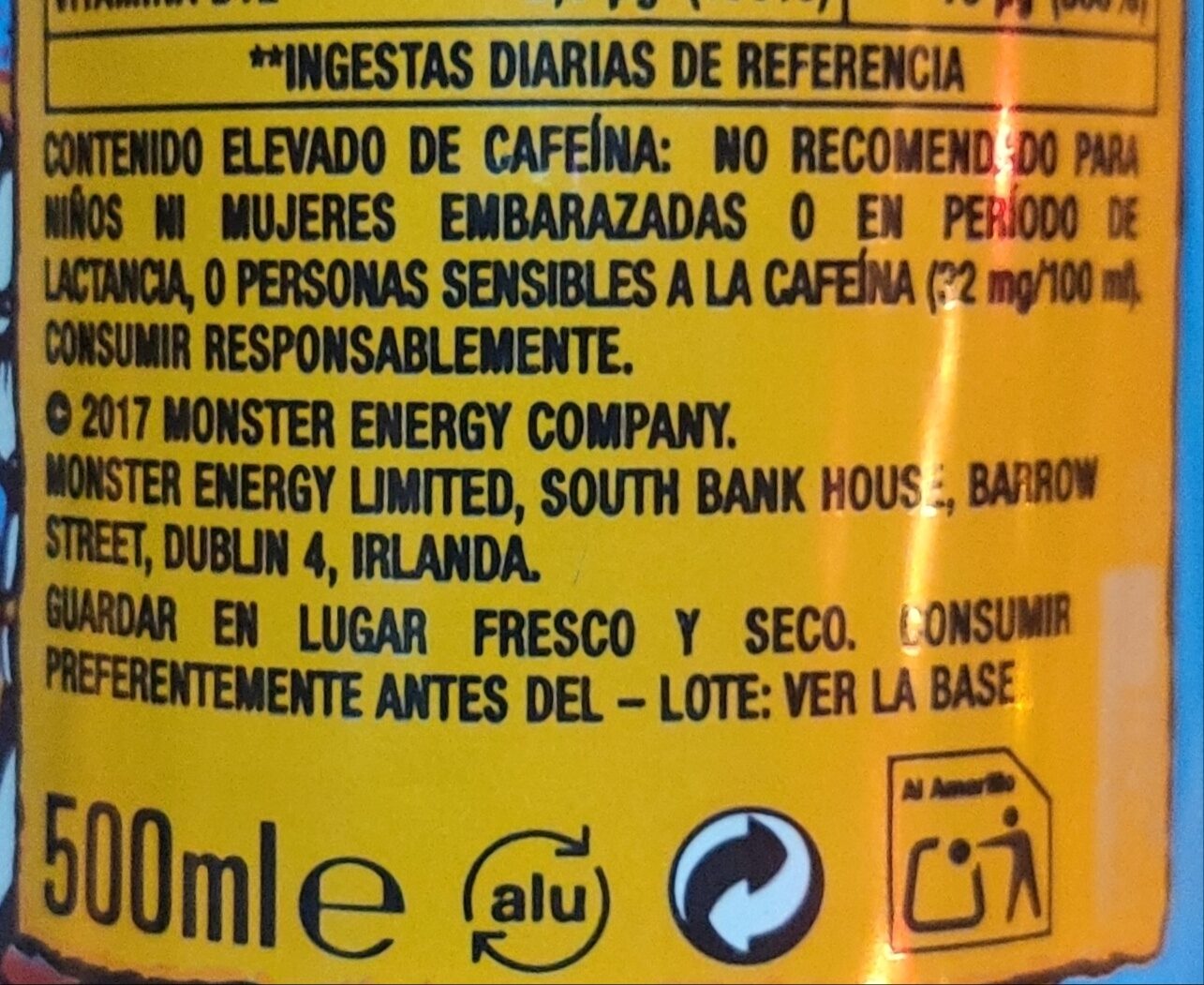Mango loco bebida energética con taurina y ginseng - Monster Energy - 500 ml
This product page is not complete. You can help to complete it by editing it and adding more data from the photos we have, or by taking more photos using the app for Android or iPhone/iPad. Thank you!
×
Barra-kodea: 5060639121915 (EAN / EAN-13)
Izen arrunta: Bebida energética carbonatada con taurina, cafeína, L-carnitina, inositol y vitaminas del grupo B, con azúcares y edulcorante
Kopurua: 500 ml
Ontziratzea: en:Can
Markak: Monster Energy
Kategoriak: en:Beverages, en:Artificially sweetened beverages, en:Energy drinks, en:Sweetened beverages
Saltzen diren herrialdeak: Espainia
Matching with your preferences
Report a problem
Datuen iturria
Product added on by kiliweb
Last edit of product page on by duhowpi.
Produktuaren orria -gatik editatua ecoscore-impact-estimator, elcoco, inf, jog13ovd, musarana, openfoodfacts-contributors, packbot, thaialagata, yuka.YktaZFBQVURpT05XZ3ZRUTVDM3grTmR1MWNYeVpHK3pBT29VSVE9PQ, yuka.sY2b0xO6T85zoF3NwEKvlhd3fIXHgjvYMQ3WiHWVmvbfC7PhOd9s6ZerGKo, yuka.sY2b0xO6T85zoF3NwEKvlmBJXf_A82LNGgTuuxKL3OqvIabBcMBb7YbBaas.












